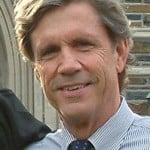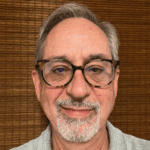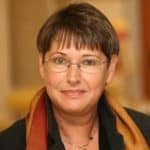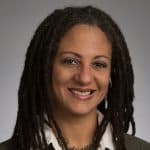מועצת מייעצת מדעית
Our Scientific Advisory Board consists of a committed group of highly respected and experienced researchers, clinicians, and health industry leaders who provide guidance on strategic research priorities for Emily’s Entourage.
Kevin Foskett, PhD, Chair
Chair, Department of Physiology; Isaac Ott Professor of Physiology, Perelman School of Medicine, University of Pennsylvania
J. Kevin Foskett, PhD, is the Isaac Ott Professor of Physiology and Chair of the Department of Physiology in the Perelman School of Medicine at the University of Pennsylvania. He is also Professor in the Department of Cell and Developmental Biology, and a member of the Mahoney Institute for Neurosciences and the Abramson Cancer Center. Dr. Foskett has been a stalwart member of Penn Medicine for nearly 20 years. After earning his doctorate at the University of California, Berkeley, he held positions at Toronto’s Hospital for Sick Children and at the University of Toronto before coming to Penn.
Dr. Foskett’s research for over 30 years has focused on the mechanisms and regulation of ion transport and signal transduction. He has had long standing interest in exocrine epithelial ion and water transport, with a particular focus on the genetic disease cystic fibrosis (CF), and has published extensively on various aspects of the biophysics and cell biology of CFTR and the cell biology of lung submucosal glands, the site of the primary defect in the lungs in CF. He served as a consultant to the Cystic Fibrosis Foundation in their collaboration with Aurora Biosciences/Vertex that directly led to the development of the first drug that targets the basic defect in CF.
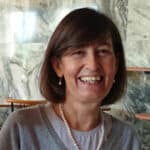 Margarida D. Amaral, PhD
Margarida D. Amaral, PhD
Professor of Biochemistry/Molecular Biology at the Faculty of Sciences, University of Lisboa (Portugal) and Group Leader at the Biosystems & Integrative Sciences Institute (BioISl)
Margarida D. Amaral, PhD, is a Full Professor of Biochemistry/ Molecular Biology at the Faculty of Sciences, University of Lisboa (Portugal) and Group Leader at the Biosystems & Integrative Sciences Institute (BioISl). For over 20 years, her research career has been dedicated to the basic and translational research of cystic fibrosis (CF).
Dr. Amaral is an alumna of European Molecular Biology Laboratory and of the Gulbenkian Institute of Science. She is also a member of the European Molecular Biology Organization and the Portuguese Academy of Sciences. Dr. Amaral has received multiple awards, including the Pfizer-SCML Award for Basic Biomedical Research and the Annual Award of the European Cystic Fibrosis Society. The overall goal of Dr. Amaral’s research is to understand the molecular and cellular mechanisms of CF and to translate this knowledge into the benefit of patients. She has authored more than 170 international papers.
דיוויד מ. בדוול, דוקטורט
James C. and Elizabeth T. Lee Endowed Chair of Biochemistry; Professor and Chair of the Department of Biochemistry and Molecular Genetics in the Heersink School of medicine at the University of Alabama at Birmingham (UAB)
Dr. Bedwell serves as the Co-Director of the UAB Structural Biology Program and as Associate Director of the Gregory Fleming James Cystic Fibrosis Research Center. Dr. Bedwell is also an Editorial Board Member for the Journal of Biological Chemistry.
The major goal of Dr. Bedwell’s lab is to develop therapeutic strategies to treat genetic diseases caused by nonsense mutations. His team uses a combination of genomics, genetics, biochemistry, and cell biology to better understand the molecular details of translation termination in order to develop viable therapeutic strategies aimed at suppressing nonsense mutations and restoring the expression of full-length, functional proteins.
One disease currently under active investigation is cystic fibrosis (CF). Roughly 10% of CF patients carry a nonsense mutation in the CFTR gene. Dr. Bedwell’s group has participated in the identification of functionally distinct compounds that suppress termination at nonsense mutations in the CFTR gene and are examining these so-called “readthrough” agents in various experimental models. They have also identified the amino acids that become inserted during the suppression of many nonsense mutations in mammalian cells and are using that information to develop strategies to enhance the CFTR activity restored by nonsense suppression using CFTR correctors and potentiators.
Other diseases that Dr. Bedwell’s lab is using to study the utility of this approach include neurofibromatosis, FOXG1 deficiency, Rett syndrome, and Hurler syndrome. The ultimate goal of this approach is to provide an effective treatment for patients with a range of genetic diseases caused by nonsense mutations.
ג'ניפר בומברגר, דוקטורט
Professor, Microbiology and Immunology, Geisel School of Medicine at Dartmouth College, Associate Director, DartCF Research and Development Program in Cystic Fibrosis at Dartmouth
Dr. Bomberger has been active in the cystic fibrosis (CF) research community for over 15 years, participating in many national committees and leading local CF programs. She currently chairs the CF Foundation’s Infection Research Initiative and the Best Junior Investigator Basic Science Award at the annual NACFC, as well as serves on the NACFC program planning committee and research training study section for the CFF. Dr. Bomberger has mentored a number of CF scientists and physician scientists on CFF fellowships and transition awards and is dedicated to training the next generation of CF scientists.
Dr. Bomberger recently joined the faculty at the Geisel School of Medicine at Dartmouth, after starting her independent research program at the University of Pittsburgh. Utilizing her training in epithelial cell biology and microbiology as a foundation, the Bomberger laboratory studies host-pathogen interactions in the lung, focusing on the modulation of airway epithelial cell biology by respiratory pathogens and the pathogen’s response to the host. Her long-term research goals are to elucidate the cellular and molecular mechanisms whereby CF pathogens and respiratory viruses synergize to impact lung disease and, ultimately, identify new therapeutic approaches to control combined chronic P. aeruginosa and respiratory virus infections in people with CF.
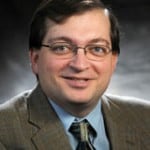 דניס האדג'יליאדיס, MD
דניס האדג'יליאדיס, MD
Paul F Harron Jr Associate Professor of Medicine; Perelman School of Medicine University of Pennsylvania; Program Director, Adult Cystic Fibrosis Program; Member, Lung Transplantation Program; Physician Leader, Advanced Lung Disease Research Group
Denis Hadjiliadis, MD, did his undergraduate studies at McGill University and completed his medical degree at the University of Toronto in 1995. He subsequently pursued training in Internal Medicine at the Mayo Clinic and Pulmonary and Critical Care at Duke University, where he also completed a Master’s of Health Sciences in 2001. He joined the faculty at the University of Toronto in 2001, after further training in lung transplantation and cystic fibrosis (CF). He joined the University of Pennsylvania in 2005 and has been the Adult Program Director of the Cystic Fibrosis Program since 2009, while remaining active at the Penn Lung Transplant Program. He is currently the Paul F. Harron Jr. Associate Professor of Medicine, at the Perelman School of Medicine of the University of Pennsylvania.
Dr. Hadjiliadis has a very active practice in one of the largest adult cystic fibrosis programs in the country and also manages patients before and after lung transplantation, mainly with CF. In addition, he is the physician leader of the Advanced Lung Disease Research Group and has been the local Principal Investigator for many clinical trials. He also has been involved in many investigator initiated clinical trials in areas of susceptibility to Pseudomonas infection, inspiratory muscle strength and training in CF, use of flaxseed in CF and many others. He always has helped train many young physicians and foster their careers in CF.
 פטריק הריסון, דוקטורט
פטריק הריסון, דוקטורט
Senior Lecturer in Molecular Physiology and Head of CF Gene Editing Lab, Department of Physiology; School of Medicine, University College Cork, Ireland
In 2012, the gene editing group led by Patrick Harrison, PhD, reported the first successful correction of a CFTR mutation in a cell model of cystic fibrosis. Since then, his lab has successfully applied a range of new strategies to correct a number of PTC and splicing mutations with greater efficiency, and with a focus on approaches that are amenable to clinical development. The lab is currently funded by the CF Foundation (USA), CF Trust (UK) and Science Foundation Ireland, and is collaborating with other groups in London, across Europe and North America towards the common goal of developing gene-based therapies suitable for everyone with CF.
Dr. Harrison has been a regular presenter and session organizer at European and American CF conferences since 2014, including a keynote talk on Gene Editing for CF: Heading Towards a Brave New World, at the 2017 European CF conference. Outside the lab, Dr. Harrison is the Chair of the CF Trust’s Research Grants Review Committee and European Editor for the journal טיפול גנטי. He also supports research on other genetic diseases working with Cystinosis Ireland, and as a board member of The Irish Platform for Patients’ Organisations, Science and Industry.
בת שבע כרם, ד"ר
Professor, Hebrew University of Jerusalem
Department of Genetics
Prof. Batsheva Kerem received her B.Sc. in Biology (1979) and her PhD (1986) from the Hebrew University. Her postdoctoral training was at the Hospital for Sick Children, Toronto Canada (1987-1990). Since 1990, she is a faculty member at the Department of Genetics, The Life Sciences Institute, The Hebrew University, Jerusalem, Israel. Prof. Kerem was appointed a full professor at 2003.
At the Hebrew University, she established and chaired the National Genomic Knowledge Center at the Institute of Life Sciences and served as the Head of Department of Genetics (2004-2006) and as the Head of the Authority for research students (from 2007-2011). From 2013, Prof. Kerem is the President advisor for promotion of women in science. Dr. Kerem received numerous prizes, including the Joels Senior Lectureship for Excellence in Science (1996), Teva Prize for Excellence in Human Genome (1993), Julodan Prize for Contribution to Medicine (1993), Abisch-Frenkel Prize for Excellence in Life Sciences (2003) and Emet Prize (2008). Dr. Kerem is a member of the European Molecular Biology Organization (EMBO). She serves on the editorial board of the European Journal of Human Genetics ו EMBO Reports. Prof. Kerem has published over 120 papers.
Dr. Kerem has been working in cystic fibrosis (CF) research for already 29 years. She has been part of the group that cloned the CFTR gene. Through the years, she focused on two main CF research projects: development of therapeutic approaches for patients carrying nonsense mutations, including studies on cellular homeostatic systems affecting the response of patients to readthrough treatments. The other project focuses on developments of new therapeutic concepts for patients carrying splicing mutations/variants.
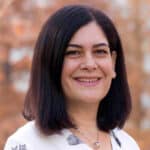 מריה לימבריס, דוקטורט
מריה לימבריס, דוקטורט
Maria P. Limberis, PhD, has more than 20 years of gene therapy research experience. She has dedicated her research career to the discovery and development of novel gene therapies for the potential treatment of cystic fibrosis (CF) airway disease. Most recently, Dr. Limberis served as Vice President of Research at Spirovant Sciences, Ltd. Previously, she was an Associate Professor in the Department of Medicine at the University of Pennsylvania, leading pre-clinical R&D and translational gene therapy programs in CF and airborne infectious diseases.
Through her doctoral research at the University of Adelaide and the Women’s and Children’s Hospital in Adelaide, Australia, Dr. Limberis developed a novel gene therapy regimen for lungs affected by CF, involving a compound found naturally in the lungs that ‘conditions’ the lungs to allow diseased airway cells to take up the therapeutic CF gene. The results, published in טיפול גנטי אנושי בשנת 2002, היו הראשונים שהדגימו שטיפול גנטי מבוסס lentiviral "מתקן" את הפגם בדרכי הנשימה CF במודל חיה של CF. מחקר זה שימש כבסיס למחקרים רבים על ריפוי גנטי, והוא מצוטט ביותר מ-155 פרסומים.
ג'ניפר טיילור-קוזר, MD, MSCS, ATSF
Medical Director, Clinical Research Services; Co-Director, Adult Cystic Fibrosis Program; CF Therapeutics Development Director; Professor (tenured), Departments of Medicine and Pediatrics, The Tuchman Family Division of Pulmonary, Critical Care and Sleep Medicine, National Jewish Health
Dr. Jennifer Taylor-Cousar is a tenured professor of adult and pediatric pulmonary medicine at National Jewish Health (NJH), where she serves as the Medical Director of Clinical Research Services. She oversees the care of children with pulmonary disease and adults with cystic fibrosis (CF). Dr. Taylor-Cousar is co-director of the Adult CF Program and Director of the CF Therapeutics Development Network (TDN) research that is conducted at NJH, and has been site primary investigator on more than 40 studies, and global site investigator on three studies. Her investigator initiated research focuses on the development and evaluation of novel therapies for the treatment of CF, and determination of the etiology and treatment of bronchiectasis in non-human primates.
She serves on numerous local and national committees including the CF Foundation’s Clinical Research Advisory Board, the CF TDN’s Clinical Research Executive Committee and as Chair of the CF TDN’s Women’s Health Research Working Group. She recently completed service on the American Thoracic Society (ATS) Scientific Advisory Committee, and was voted Chair-Elect for the 2019-2020 ATS Clinical Problems Programming Committee (Chair, 2020-2021). She has co-chaired numerous sessions and given invited lectures at the ATS International Conference, and the North American, European and Australian CF Conferences, as well as at regional CF and pulmonary conferences and national and international veterinary conferences. She is an active member of the Colorado Chapter CF Board.
ד"ר טיילור-קוזר קיבלה את התואר הראשון שלה בביולוגיה אנושית מאוניברסיטת סטנפורד בשנת 1993. היא השלימה את הדוקטורט שלה ברפואה בשנת 1998, התמחות משולבת ברפואה פנימית ורפואת ילדים בשנת 2002, ואת המלגה המשולבת שלה ברפואת ריאות למבוגרים וילדים בשנת 2006 ב- המרכז הרפואי של אוניברסיטת דיוק. ד"ר טיילור-קוזר השיגה את התואר השני במדעים קליניים מאוניברסיטת קולורדו ב-2015.

טד ג'יי טורפי, דוקטורט
מנהל מדעי ראשי, ביומוטיב; יו"ר דירקטוריון, Cystic Fibrosis Foundation Therapeutics, Inc.
טד ג'יי טורפי, PhD, הוא המנהל המדעי הראשי של BioMotiv, הזרוע למטרות רווח של פרויקט הרינגטון, שמטרתו להאיץ את התרגום של תגליות אקדמיות לתרופות. מאז 2004, ד"ר טורפי גם יושב בראש מועצת המנהלים של Cystic Fibrosis Foundation Therapeutics, Inc. במהלך תקופה זו הציגה הקרן את מודל הפילנתרופיה המיזם של השקעה משותפת עם חברות ביוטכנולוגיה ותרופות כדי להביא טיפולים פורצי דרך לאנשים עם סיסטיק פיברוזיס (CF) ), כולל KALYDECO® ו-ORKAMBITM, הטיפולים הראשונים שמתקנים את הפגם הבסיסי הגורם ל-CF.
לפני שהצטרף לביומוטיב ד"ר טורפי בילה 30 שנה בתעשיית התרופות, ועבד ב-SmithKline Beecham וב-Johnson & Johnson. ההתמקדות שלו הייתה בגילוי תרופות ובפיתוח לא-קליני של מולקולות קטנות וגם של תרופות ביולוגיות באזורים הטיפוליים של מחלות לב וכלי דם, מטבוליות, ריאות, כליות ומחלות דלקתיות. במהלך תקופה זו הוא היה שותף לגילוי ופיתוח של מוצרים משווקים רבים, כולל SIMPONI®, STELERA® ו-SYLVANT®. ד"ר טורפי הוא בעל תואר B. ברוקחות מאוניברסיטת ויסקונסין ותואר דוקטור בפרמקולוגיה וטוקסיקולוגיה מאוניברסיטת מערב וירג'יניה. הוא השלים את הכשרת הפוסט-דוקטורט שלו באוניברסיטת קליפורניה, סן דייגו.
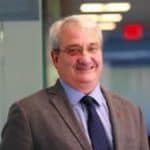 דוד ב. ויינר, דוקטורט
דוד ב. ויינר, דוקטורט
סגן נשיא בכיר, מכון ויסטאר; מנהל, מרכז החיסונים ויסטאר; פרופסור לנאמנות צדקה של WW Smith בחקר הסרטן
אימונולוג ומומחה חיסונים בולט, דיוויד ב. ויינר, דוקטור, הוא סגן נשיא בכיר של מכון ויסטאר, מנהל מרכז החיסונים ויסטאר, והפרופסור לחקר הסרטן של WW Smith Charitable Trust. ד"ר ויינר מנהל מעבדת מחקר תרגום בתחום האימונולוגיה המולקולרית. קבוצתו היא אחת מצוותי המחקר החלוציים בהקמת תחום חיסוני ה-DNA והטיפולים החיסוניים. דיווחים חשובים מהמעבדה שלו כוללים את חיסון ה-DNA הראשון שנחקר ל-HIV כמו גם לטיפול חיסוני בסרטן, התפתחות מוקדמת של אדג'ובנטים גנטיים מקודדים ב-DNA כולל ה-IL-12 הרלוונטי במיוחד, התקדמות באופטימיזציה של גנים, והתקדמות בטכנולוגיות אלקטרופורציה שהביאו לשיפור מסירת גנים בין היתר. הקבוצה שלו עבדה עם משתפי פעולה כדי להפוך לראשונים שהעבירו את טכנולוגיית ה-DNA למחקר אנושי. עבודת המעבדה שלו סייעה להחיות את התחום באמצעות קידום עיצוב DNA סינתטי חדש ושינוי של גישות אספקת EP שהביאו להשראה חיסונית חזקה, כמו גם מחקר היעילות הראשון של שלב IIb DNA (לטיפול חיסוני HPV) בבני אדם.
ויינר זוכה בהצטיינות רבים, לרבות בחירה כעמית הן באגודה האמריקאית לקידום המדע בשנת 2011 והן ב-International Society for Vaccines בשנת 2012. הוא חתן פרס המחקר הטרנספורמטיבי של מנהל NIH וקיבל את הצטיינות תעשיית החיסונים פרס לצוות המחקר האקדמי הטוב ביותר בשנת 2015 בקונגרס החיסונים העולמי. ויינר זכה בתואר ההרצאות היוקרתי של הילמן בשנת 2015 במפגש הגדול של בית החולים לילדים בפילדלפיה וקיבל פרס משפחת אבן ממרכז הסרטן אברמסון על עבודתו פורצת הדרך בנושא חיסוני DNA לטיפול חיסוני בסרטן.
במרץ 2016, חזר ויינר לוויסטאר מתפקידו בבית הספר לרפואה של אוניברסיטת פנסילבניה כפרופסור לפתולוגיה ולרפואת מעבדה. מ-1990 עד 1993, וינר מילא תפקיד משותף כפרופסור עוזר לפתולוגיה ולרפואת מעבדה במכון ויסטאר ובבית הספר לרפואה של אוניברסיטת פנסילבניה.
ויינר סיים תואר ראשון בביולוגיה מ-SUNY בסטוני ברוק, בסטוני ברוק, ניו יורק, תואר שני בביולוגיה מאוניברסיטת סינסינטי ותואר שלישי בביולוגיה התפתחותית מאוניברסיטת סינסינטי קולג' לרפואה.
להציל
להציל
להציל

